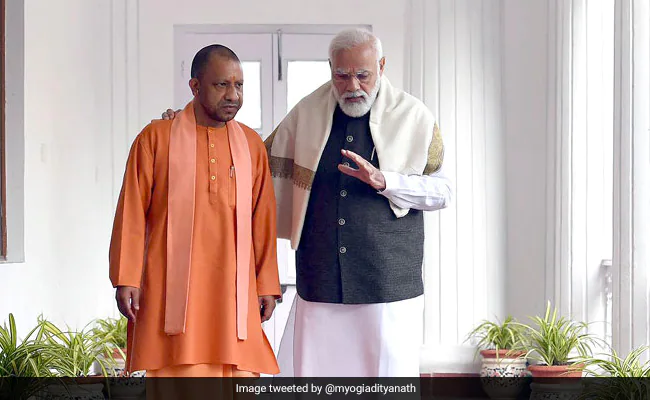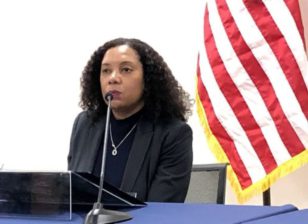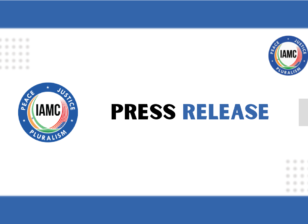Profiting Off of Hate: How anti-Muslim Rhetoric in BJP Election Campaigns Brings India One Step Closer to Genocide
By Noelle Jones
Not only have Prime Minister Narendra Modi and his Bharatiya Janata Party (BJP) failed to condemn the calls for genocides against Muslims at the dharma sansads (Hindu Religious Parliament) held in Haridwar (Uttarakhand), Delhi, and Raipur in December 2021, but they have actively profited from perpetuating Hindutva (Hindu-nationalist) anti-Muslim myths, stereotypes, and rhetoric in their 2022 election campaigns.
In Hindutva rhetoric, Muslims are portrayed as the antithesis to Hindus and their presence a threat to establishing a purely Hindu nation and society. Hindus are painted as civilized, virtuous, clean, and enlightened while Muslims are seen as barbaric, backward, immoral, violent, and dirty. According to Hindutva ideology, Islam is a foreign religion that does not call India its holyland. Followers of Islam, therefore, are painted as having allegiances to foreign entities and are “anti-national” or “traitors” to India.
Echoing this belief, in a campaign speech in the recently culminated elections in Uttar Pradesh state, BJP candidate Raghvendra Pratap Singh, claimed that “any Hindu who doesn’t vote for me has Miyan [slur for Muslim] blood in his veins. He’s a traitor.” Singh also emphasized his hard stance on “Muslim terrorism,” asserting that since Muslims had been “driven out of power,” “Women and children are able to roam around safely on the streets.”
This reflects Hindutva myths about Muslim men who are portrayed as a dangerous threat to Hindu women, and in turn, Mother India. Hindutva rhetoric promotes the stereotype that Muslim men are hypersexual and seek to seduce or rape innocent Hindu women. This then feeds into the myth of the “love jihad” in which Muslims seduce Hindu women into marriage with the aim of converting them to Islam. Many BJP ruled states have passed “love jihad” laws on the basis of this conspiracy theory.
Per Hindutva ideology, in order to make India a purely Hindu nation or Hindu Rashtra, religious minorities must assimilate into the Hindu way of life or leave. Religious minorities who remain in India without assimilating would be considered second-class citizens. Mayankeshwar Sharan Singh, another BJP candidate from Uttar Pradesh, was filmed saying in a campaign speech, “If you have to live in Hindustan you have to say ‘Radhe Radhe‘ [Hindi salutation], else, like those who went to Pakistan during the partition, you can go too… you have no use here.”
In the same vein, Hindutva rhetoric also portrays Muslims as a competing force for the soul of India, threatening to outnumber Hindus and establish a purely Muslim state. Recently, Bihar state BJP legislator, Hari Bhushan Thakur perpetuated this message, stating, “They (Muslims) are increasing population and want to make India a Muslim state…We cannot allow that to happen. Hence we have demanded from the government the withdrawal of voting rights from them and make them second-class citizens.”
These anti-Muslim Hindutva talking points are not isolated to just campaign speeches. This rhetoric gains new life online through the sharing of content on social media (Facebook, Instagram, WhatsApp, etc), which the BJP exploits to exponentially spread their message, reach more people, and garner support.
In both the 2014 and 2019 general election campaigns, Modi and the BJP utilized social media campaigns, resulting in the development of the “IT cell” wing of the party composed of paid core staff, internet volunteers, and troll farms. These internet volunteers spread the BJP’s Hindutva rhetoric through posting, tweeting, commenting, and tagging the content sent out by the IT cell. Through the social media activity of this “IT cell,” journalists and activists critical of the Modi government, the RSS, and the Sangh Parivar are harassed; political adversaries are trolled; “fake news” is spread, and offensive content targeting religious minorities is perpetuated.
Like other right-wing groups who use alternative social media, such as Gab, Parler, BitChute, MeWe, and GETTR, Hindu nationalists also gravitate to the social media platform “Koo,” a Bengaluru-based micro-blogging service pitched as an alternative to Twitter that was specifically designed to meet India’s multilingual communication “needs”. Modi and BJP members have accounts on Koo which they use to provide their followers with exclusive first access to press releases and government updates, allowing them to develop a following.
With its projected 100 million users by the end of 2022, Koo serves as an echo chamber for right-wing Hindutva content as like-minded Indians can connect and share content with little overhead content moderation. Additionally, in order to have direct access to BJP supporters and potential voters, Modi released the Narendra Modi or “NaMo” app where users can volunteer for BJP programs, actively participate in BJP policy, and listen to Modi’s Maan ki Baat radio talk show.
The app also includes a citizen “To Do” list for users and user participation is incentivized by the earning of “citizenship points.” Like Koo, this app has also become a place for the sharing of increasingly polarizing content among like-minded users.
The result is a combination of a top-down and bottom-up generation and the spread of Hindutva anti-Muslim content by BJP leaders and their followers that feed off of one another. This perpetuation and pervasiveness of anti-Muslim hate speech, while benefitting the BJP politically, has real-world consequences for India’s Muslims who are the targets of discriminatory policies, harassment, and violence carried out by mobilized Hindu nationalists. The continual and strategic use of anti-Muslim rhetoric in campaign speeches and online content after calls for genocide further demonstrates the real threat of genocidal calls becoming genocidal actions and the complicity of BJP government officials in this process.
Like the speakers at the dharma sansads, BJP candidates like Raghvendra Pratap Singh, Mayankeshwar Sharan Singh, and Hari Bhushan Thakur face little to no tangible repercussions for their hate speech which only serves to embolden their rhetoric.
If there is any hope of de-escalation, the international community and Indian society must put pressure on the Indian government and election officials to hold those who commit hate speech responsible and ensure a free and fair election. If left unchecked, the same cycle of hate speech will replicate in 2024 election campaigns which could escalate into a 2024 genocidal campaign.
(The author is a Genocide Scholar and currently a Genocide Researcher with the Indian American Muslim Council.)



